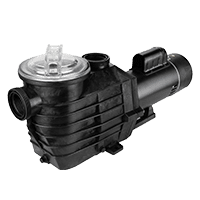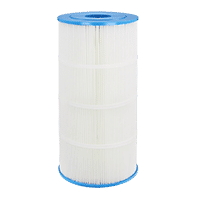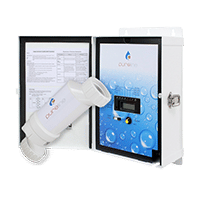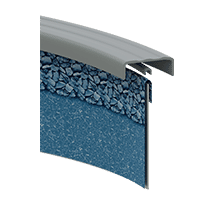Have you ever heard of “cyanuric acid” in your swimming pool water? What about “stabilizer” or “conditioner” level? Here’s the thing: they’re all the same thing (it’s just different terms for it). The real question is, “Do you know the power of stabilizer in pool chemistry?” This chemistry point can affect nearly all of the other chemical levels in your swimming pool, create more physical work and, most importantly, your pocketbook. Stabilizer acts as insulation from the sun in your water and helps to keep the chlorine active. Let’s get your pool power level up in this article, shall we?
Maintaining the chlorine level
If you have yet to experience this you still may, but let’s just say that if your chlorine level suddenly drops, you will need to shock it, and then rebalance that level with chlorine tablets (unless you use an alternative sanitizer). This can become quite an annoyance if it consistently occurs. Always rushing around, buying extra shock treatments, and toting those chemicals around, potentially spilling them. All because the stabilizer level simply may have been low! Some new pool owners think that all a swimming pool needs is shock, and tablets to keep the pool blue. Unfortunately, that is not the case. What if you have swimmers ready to use the pool and you realize the chlorine level has just dropped? Now they might not be able to swim right away. You will need to shock the pool and depending on what you need or use, you may not be able to swim for another 24 hours. Ugh, what a bummer! Keeping that stabilizer level up to par will definitely help to prevent those unfortunate circumstances.
Algae blooms
Oh no, you walk outside to your swimming pool and you notice that you have some yellowish-green algae beginning to grow on your walls, floor, or steps! Wait, is that algae on your tile grout also? Yup, the chlorine level was way too low and too fast! Didn’t you just shock the pool a few days ago? Have you tested your pool chemistry lately? You decide to, and there it is again, the culprit. Low stabilizer. Oh man, now you have to start fighting pool algae. Do some extra pool brushing, filter cleaning, shocking, using algae kill treatments, and then follow up the next day to get the dead algae out. Heads-up, your shoulders might be burning after all of that extra brushing! That’s a lot more work and money than you expected or hoped to face. Don’t forget, you may need to clean algae from the pool tile grout now. And why? Because of what Darth said, “You don’t know the power of stabilizer in pool chemistry.” Well, not exactly, but yeah, you get it.
Saving money
There you are realizing that the chlorine dropped. Goodness, now you have to add more granular shock or maybe liquid chlorine. Darn it, you ran out much quicker than you had hoped. Well, you have to go get more now. Ouch, that’s more money to spend! Don’t forget about the chlorine tablets while you’re at it. But wait, you were adding tablets as well. So, why did the chlorine level drop? Oh yes, of course, because the stabilizer was low. Also, adding more shock to your pool than the usual amount may cause your pH and alkalinity levels to spike. When that happens, you may need to add more acid to bring those levels back down and into range. Yup, and you can bet that those are more expenses to worry about. Don’t forget you had to purchase some algae kill to work in conjunction with the algae treatment, and gloves to hold the chlorine tablets for that tile grout cleaning. Wow, that can be quite a bit of extra costs, right? This is why maintaining that stabilizer level helps you to save money.
Make your work and life easier
Focusing on your stabilizer, conditioner (aka cyanuric acid level) truly does make your pool maintenance work far easier (especially coming out of the winter and spring as you open up your pool for the swim season). That level can quickly drop without you even realizing it. Water dilution can cause that as well. Once you learn the importance of monitoring your stabilizer level, your life really does get easier. Other chemistry points are also very important. So, please do not forget that! We recommend having your pool chemistry tested regularly. All of that extra brushing, tile cleaning, vacuuming, filter cleaning, time spent, etc. aren’t really needed. Just do yourself that favor and monitor your stabilizer level. You’ll be very glad that you did.

















Leave a Reply